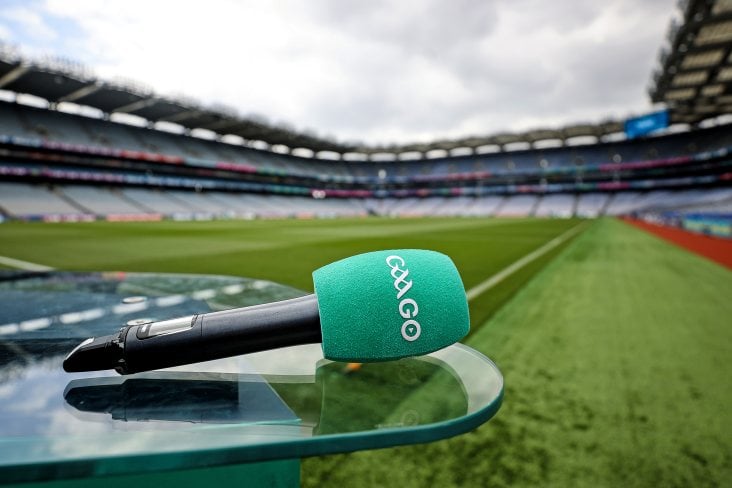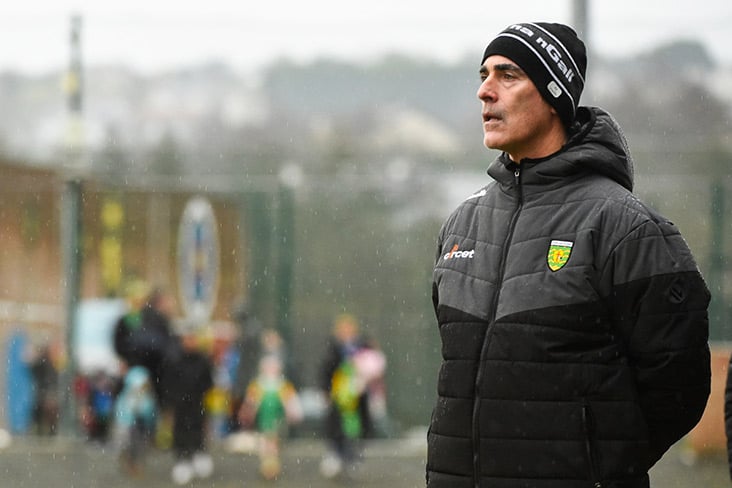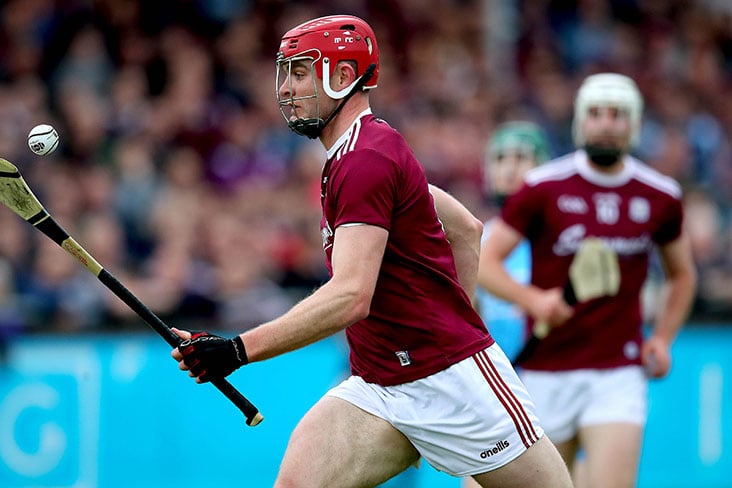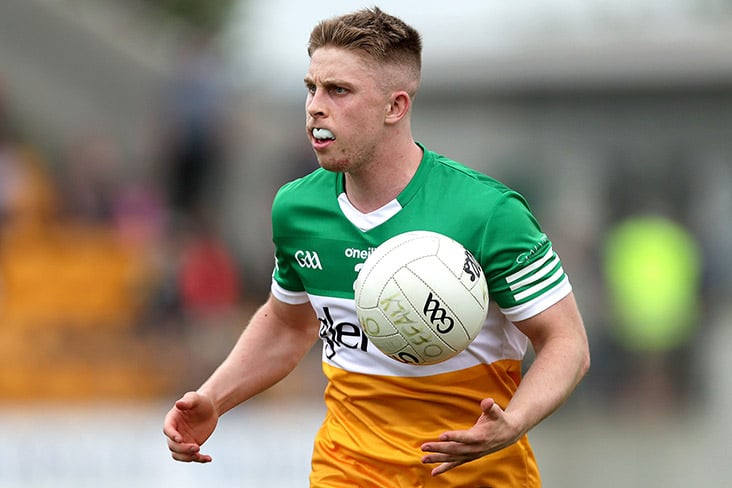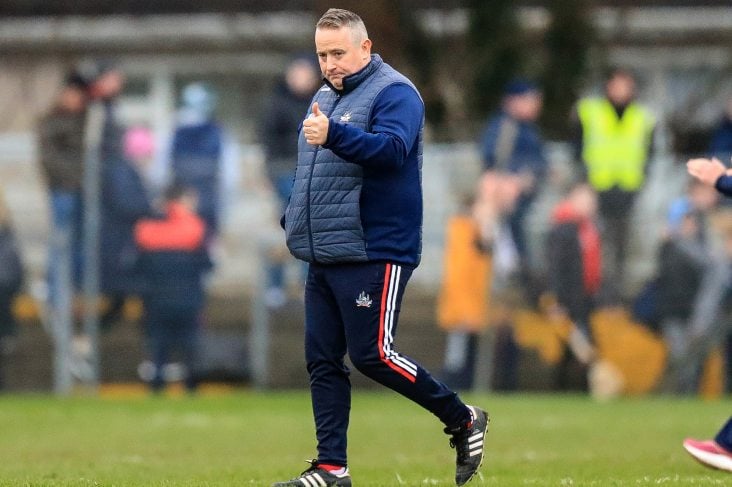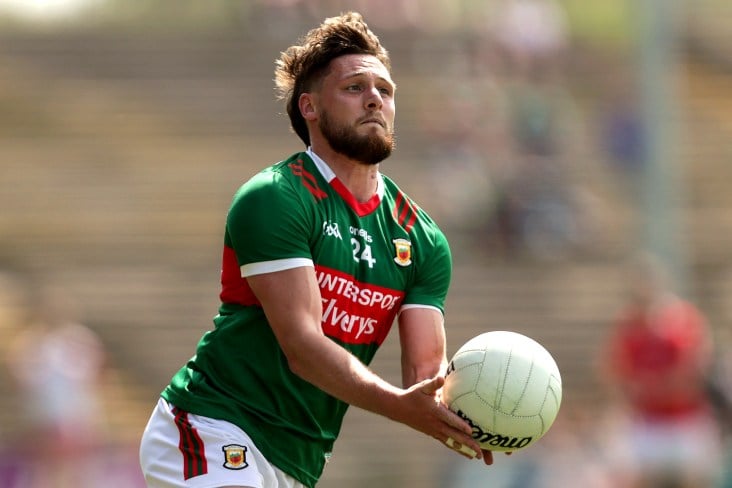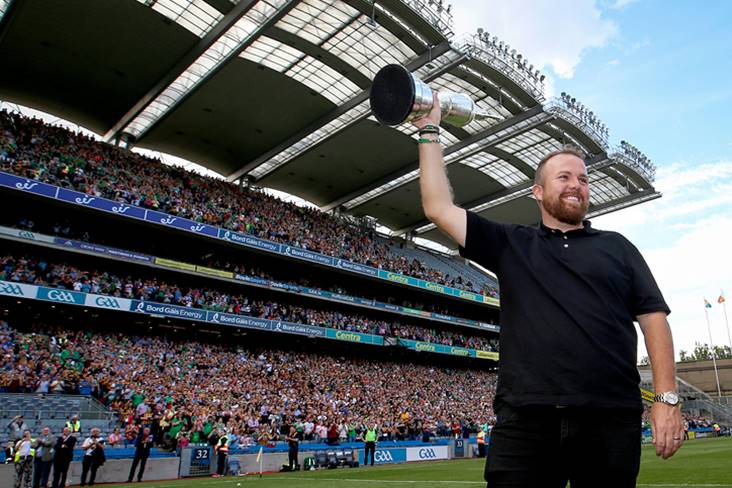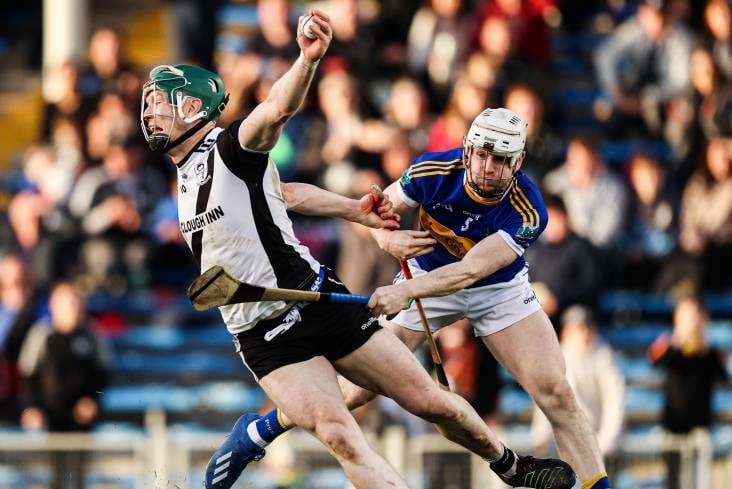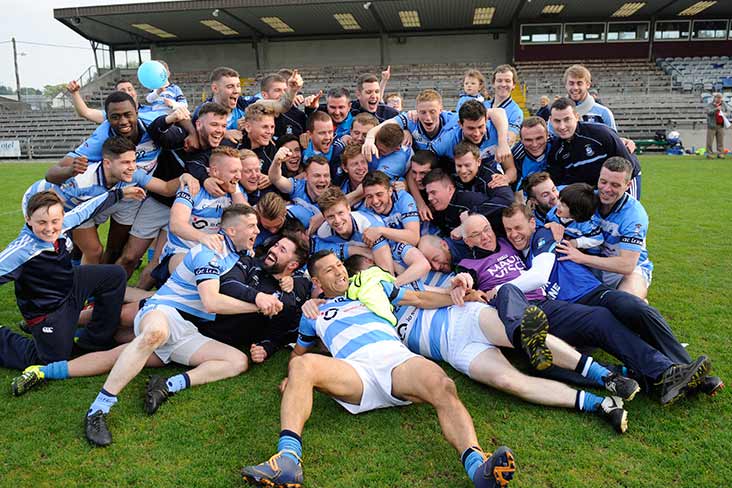McCreesh, Tom
February 12, 1993
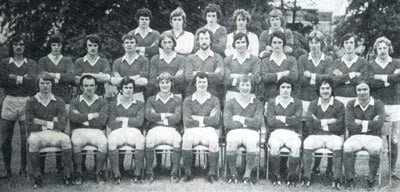
The Armagh squad that reached the 1977 All Ireland Final.
Front L-R: Paddy Moriarty; Raymond Kelly; Denis Stevenson; Peter Trainor; Jimmy Smyth; Jim Finnegan; Redmond Scullion; Frank Toman; Peter Loughran.
Middle L-R: Jim McKerr; Noel Marley; Jim Loughran; TOM MC CREESH; Larry Kearns; Colm McKinstry; Joe Kernan; Thomas Cassidy; Fran McMahon; Noel O'Hagan; Sean Daly.
Back L-R: Eamonn O'Neill; Brian McAlinden; John Donnelly; Malachy Heeney; Kevin Rafferty.
Tom McCreesh
One of the true greats to emerge from Crossmaglen
Crossmaglen Rangers, Armagh and Ulster star. Without question, Tom McCreesh was one of the true 'greats' of Crossmaglen Rangers, Armagh and Ulster and for talent, sportsmanship, discipline and dedication to the game of gaelic football over eighteen long and continuous years, there were few in any county in Ireland that could match his devotion to the GAA. Even if he had played with a more successful county than Armagh, he would not be better known or appreciated. He was equally proficient for club, county and province and this profile will follow that order even though they overlap in many ways.
Thomas was born in the townland of Drumbee in the parish of Upper Creggan in 1943, the second son of a dedicated GAA family, the McCreesh's of Culloville and later of Drumbee. His father Mick and his uncle Tom had both played for Armagh and his uncles Pat and Jimmy were both talented club footballers. Further back his grand uncle Pakie McCabe was a famous Donaghmoyne and Monaghan county player. Drumbee is two and a half miles from Crossmaglen and lies along the border between counties Armagh and Monaghan. His first school, Magoney, was in county Monaghan and his teacher there, Les Carolan, was a former Inniskeen player and also a member of the last Monaghan county minor team in 1945 to win the Ulster Minor Football Championship. Les still claims some credit for Thomas' later football career. Thomas then went on to another baston of the GAA, CBS Dundalk, where his talent continued to mature. When he was seventeen, still unsure of his football future or affiliation, he was enticed to sign for Crossmaglen Rangers - the only senior team in the parish - by John Martin, the Rangers secretary. Over the next few years Thomas and John became firm friends and still remain so, even to the extent of sitting up half the night yet, discussing and debating the glory days of the sixties and the whys and wherefores of victories and defeats, and both are aware and appreciative of the others significant contribution to Crossmaglen Rangers' GAA history.
Thomas' talent, reputation and mettle were soon put to the test in 1960 when he was thrown in at the deep end at centre full back for Rangers in a second round senior 1960 championship match against Maghery Shamrocks in Maghery. It was an acid test indeed at seventeen years old and no previous senior experience but Thomas came through the test comfortably and from that day onward for the next fourteen years, he served Crossmaglen Rangers with distinction as centre full back or centre half back.
Crossmaglen Rangers contested eight county Armagh senior football finals between 1960 and 1970, winning six and losing two and conceding one in 1964 in a highly contentious and dramatic year. Thomas naturally, was one of the vital cornerstones in this great run but to be fair to the other members of that best ever Rangers team, he was in talented company with the late lamented Gene Larkin, usually as captain and thirteen other county players of various grades in the line out. His older brother Michael RIP was also a member of that talented Rangers team and in 1970 both were joined by a younger brother, Patrick. The McCreesh's thus joined a select band of two previous families, the Hanrattys and the Comiskeys and since joined by the Shorts, who had three members on successful Rangers championship teams.
The year 1964 was memorable for McCreesh as well as for the Rangers as it was the first time he was sent to the line during a game. In a first round senior football championship match against Armagh Harps which Rangers were easily winning, the referee saw fit to line two of the Rangers players, both county men for offences he and nobody else considered merited the line. Later Thomas simply said to the referee 'you'll soon have us all off' and off he was sent for the first time in his life. It was the laugh of the year in county Armagh. The game had unfortunate repercussions. The County Board imposed suspensions of twelve months, three months and one month on the three Crossmaglen players. Crossmaglen Rangers, with the championship and league at their mercy, considered the suspensions hard and unjust and withdrew the team from all competitions in the county and their players from the county team until the suspensions were lifted. Naturally, this created a major sensation and Rangers held firm with surprising support from many parts of Ireland. The suspensions were lifted early in 1965 and apparently refreshed and rejuvenated by the year's 'sabbatical' Rangers proceeded to pulverise all opposition in the county and won the next three championships in a row, with Thomas at his brilliant best and compared during that period by many with the legendary Jim McCulough of the thirties. Had the Ulster Club Championship been then in vogue, this team would have won at least an Ulster Club Championship.
Thomas remained loyal to the Rangers, travelling that long, dreary, twisty road from Virginia in county Cavan where he then lived, Sunday after Sunday and even when Rangers were relegated to Division Two, he still remained loyal. However, in 1974, Thomas rightly decided that he had enough of that long, twisty road and transferred to an amalgamated senior team in Virginia called Ramor United. His coming must have been like a shot in the arm to Ramor. For the first time in Cavan's football history, Ramor United won the county Cavan senior football championship. Naturally Thomas was the toast of Virginia for a long time. The following year, 1975, Virginia (on their own) competed in the county Cavan intermediate championship and proceeded to win it for the first time in their long history and to add to Thomas' already impressive collection of medals. Incidentally, Thomas was a Ramor United player when he played full back for Armagh in the 1977 All-Ireland Football Final. There is surely material there for a tricky quiz question similar to question 100 in this year's Hogan Stand quiz in some future Hogan Stand Annual.
Thomas' collection of county medals and trophies is not quite as impressive as his club collection, even though he played for eighteen years for Armagh with the same dedication and devotion which he had given to Crossmaglen Rangers. Despite a very good club standard of football in county Armagh in the sixties and early seventies, this ability did not rub off on the county selectors and it seemed as if Thomas was wasting his sweetness on the desert air.
Thomas's first entry on the county scene took place in 1960 when he was selected at right full back on the Armagh minor football team. Armagh was defeated by Down 1-5 to 0-6, who went on to win the Ulster championship.
In 1961, Thomas was selected again for the county minors at right full back and this time there was no mistakes, and with Tom McCreesh at his best, Armagh beat Monaghan in the Ulster minor finals 3-8 to 1-4, on a memorable day in Casement Park when All-Ireland champions Down were just to the pin of their collars to defeat Armagh seniors 2-10 to 1-10. In the All-Ireland semi final, Armagh met a talented Cork side and lost by 0-12 to 1-6. Cork went on to win their first All-Ireland minor football title and incidentally complete an odd series of coincidences. In 1891 Cork defeated Armagh and went on to win their first senior football championship. In 1951 Cork defeated Armagh and and went on to win their first All-Ireland junior championship. Another possible quiz question.
In 1962 Thomas was added to the senior panel and was substitute in a stormy confrontation between Cavan and Armagh in Breffni Park in the first round of the senior championship. Three incursions of the field took place that day and the 'game' lasted almost two hours. The safest place on the field was on the substitutes bench. Armagh's record in the sixties was indeed dismal and it was not until Thomas was nearing the twilight of his career that the silver lining appeared. On 14th March 1976, Armagh defeated Clare in Croke Park to clinch the 1975-76 National Football League Division Three title and in 1978 they defeated Offaly to win the 1977/78 Division Two title. Thomas at full back was, as usual as fit as a fiddle and contributed much to both victories.
These victories appeared to be the boost to morale which had been absent so long and in 1977 Armagh, with McCreesh in his favourite centre half back position, swept all before them in Ulster, defeating Cavan in the first round and Monaghan in the semi final to qualify for their first Ulster Senior Football Final since 1954. Derry, who had beaten Armagh in the previous two years and went on to win the last two Ulster titles in a row, were the other finalists. Inspired by a truly majestic display by Thomas, Armagh got their revenge and defeated Derry by 3-10 to 1--5. Thomas won the Sunday News Man of the Match Award and the Irish Independent Star of the Week Award as well. A similar display after a previous draw put paid to Roscommon and thus Armagh qualified for their second All-Ireland final appearance against one of Dublin's best ever selections. Dublin proved too experienced on the day and won by 5-12 to 3-6. All the Armagh players got a wonderful reception on their return home and defeat did not appear to bother them a bit.
After that it was time to call a halt to a memorable football career and Thomas' last game in the county jersey was against Monaghan in the 1977/78 National League game in Lurgan, which Armagh won easily. A note had appeared in the paper that Thomas was retiring but Thomas did not know a thing about it until he read the note. Thomas was naturally annoyed as he would have preferred to make the announcement himself. It was rather insensitive, inconsiderate way to end a great county career.
Despite Armagh's dismal record, Thomas' Railway Cup displays were equally outstanding. He picked up his first Railway Cup medal on a bitterly cold St. Patricks Day in Croke Park in 1966, when Ulster defeated Munster 205 to 1-5. Thomas thus became the first Crossmaglen Rangers player to win a Railway Cup medal. He won his second Railway Cup medal in 1963, his third in 1970 and his fourth in 1971, and thus became the first Armagh player to win four Railway Cup football medals.
McCreesh's connection with county Cavan arose out of his position as an agricultural officer. After leaving Dundalk CBS he qualified for entry to Greenmount Agricultural College in 1963. After qualifying he took up a position in Derry and in 1966 moved to Virginia. In 1971 he married Kathleen Lyons of Ballyhaise and in 1978 the family moved to county Louth when Thomas took up a managerial position with Suttons' Ltd., now known as Goldcrop Ltd., specialists in seeds, fertilisers etc. with branches in Dublin and Cork. Thomas later bought an extensive farm in Maghereagh, Kilkerley, about four miles from Dundalk, where the family now live and the Crossmaglen Rangers pays to Goldcrop Ltd. and his farming, the same dedication and commitment that he paid to football. No greater tribute could be made to him than that.
Thomas and Kathleen have five children, Martin, Patricia, Karen, Deirdre and Kieran, ranging from nineteen to twelve, but so far there is no sign of the boys carrying on the great McCreesh tradition. The girls, however, all play with Kilkerley camogie club and could well blossom in a different field.
Even if the Crossmaglen, Armagh and Ulster GAA histories had not been published, there is no danger that genial, red haired, well built Thomas' contribution to all three will ever be forgotten.
Taken from Hogan Stand magazine
12th February 1993
Most Read Stories

